Blog | Federal Investment
March 6, 2025
December 13, 2023 | Awa Darboe
On December 6-7th, 2023, the Clean Energy Business Network (CEBN) and the U.S. Department of Energy (DOE) co-hosted the Community Clean Energy Coalition (CCEC) Prize Summit at the Atlanta University Center—a consortium of leading HBCUs. The summit showcased the ten winning teams of the CCEC Prize and celebrated opportunities to create a just and equitable clean energy economy in communities across the country. Nearly 300 clean energy leaders, community organizers, investors, government leaders, and other changemakers participated in the event, in-person and virtually. This event was made possible with support from the Bipartisan Policy Center’s American Energy Innovators Network, Breakthrough Energy, the Business Council for Sustainable Energy, and Ecosphere Ventures.
View a recording of the event below and the full slide deck for the event here; individual slides for each presenter/programming segment are also broken out separately in the detailed recap that follows.
The first day of the Summit brought together a broad range of stakeholders to promote dialogue and knowledge-sharing on strategies to advance an inclusive, equitable clean energy future.
CEBN President Lynn Abramson welcomed everyone, and Dr. Shadeed Abdul-Salaam, Director, Center for Sustainability and Innovation, Morehouse College provided an overview of Morehouse sustainability initiatives. Natalie Tham, Policy Analyst at the Bipartisan Policy Center detailed the work of the American Energy Innovation Network, and Debbie Brodt-Giles, American-Made Program Manager, National Renewable Energy Laboratory (NREL) discussed the CCEC Prize and the American-Made Program.
Programming kicked off with a workshop on how to leverage federal and state government programs, private capital, and green banks to support community-based clean energy development and energy justice initiatives. Presenters included:
The second workshop covered engaging stakeholders and building trust to promote just and equitable clean energy economies, climate change mitigation, environmental justice, and workforce development. Presenters included:
Attendees participated in small group stakeholder roundtable discussions to facilitate knowledge-sharing and collaboration. Each group discussed the challenges/barriers, solutions/opportunities, existing resources and needs to achieve inclusive community driven climate solutions. CEBN will distill and leverage takeaways from these discussions for ongoing stakeholder roundtables in 2024 to promote greater access to and participation in the clean energy economy; contact Awa Darboe if interested in partnering with us on these efforts.
Day one ended with a networking reception at White Oak Kitchen and Bistro. Guests were able to mingle with one another and share ideas and insights about building an equitable clean energy ecosystem.
On the second day of the summit, Dr. Charlene Gilbert, Provost and Senior Vice President, Clark Atlanta University, provided welcome remarks, an overview of the University’s programs to support next generation of environmental justice leaders, and reminded us that dedication to an equitable clean energy economy means a life-long commitment, taking “seven generations or more” to accomplish. Dr. Susan Hamm, Director of Integrated Strategies, Office of Energy Efficiency and Renewable Energy (EERE), Department of Energy, discussed the contributions of the American-Made Program, and Kelly Crawford, Senior Advisor for Energy Equity and Environmental Justice, Office of Energy Justice and Equity (EJE), Department of Energy, gave an overview of the CCEC Prize, congratulated the teams, and provided observations on the Prize and the progress of the teams.
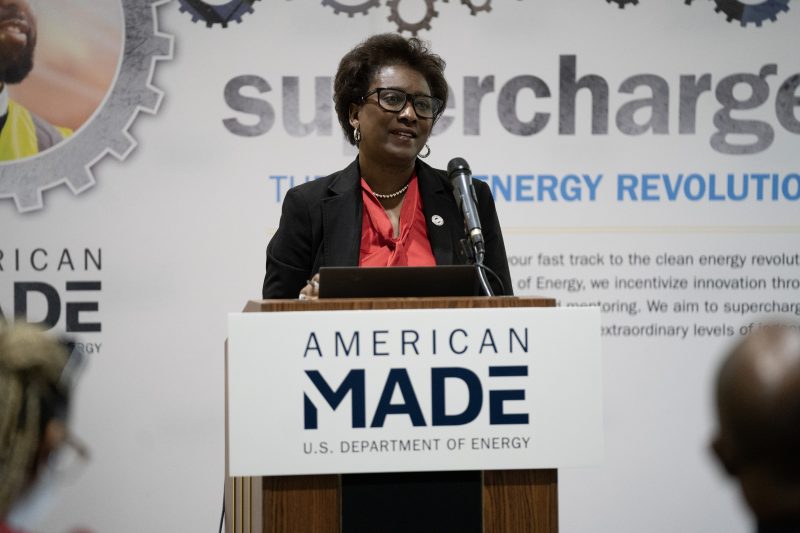
Finally, the stars of the show took the central stage as the 10 winning prize teams each provided pitches on their respective work. The teams showcased the progress of their coalitions and projects over the year-long duration of the CCEC Prize before a nationwide audience and competed for supplemental cash prizes. Representatives from the Department of Energy served as judges: Dr. Susan Hamm, Director of Integrated Strategies at EERE; Robert Sandoli, Director of Strategic Initiatives at EERE; and Kelly Crawford, Senior Adviser for Energy Equity and Environmental Justice, at the Office of Energy Justice and Equity. These officials evaluated each team’s progress toward meeting the goals of the prize and candidacy for a final $25,000 Phase Three award installment, and also selected the top three performing teams for additional supplemental awards.
Each of the ten teams presented a five-minute pitch in front of a live audience followed by five minutes of questions from the panel of judges. The presenters from each team are listed below:
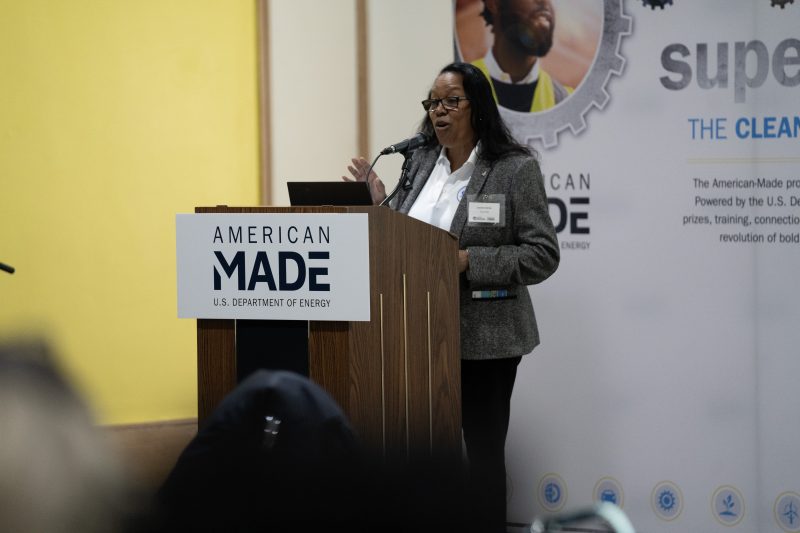
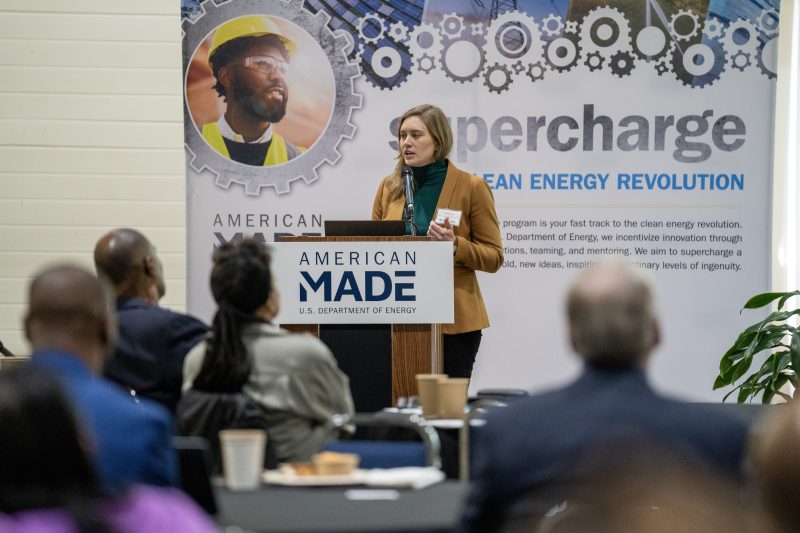
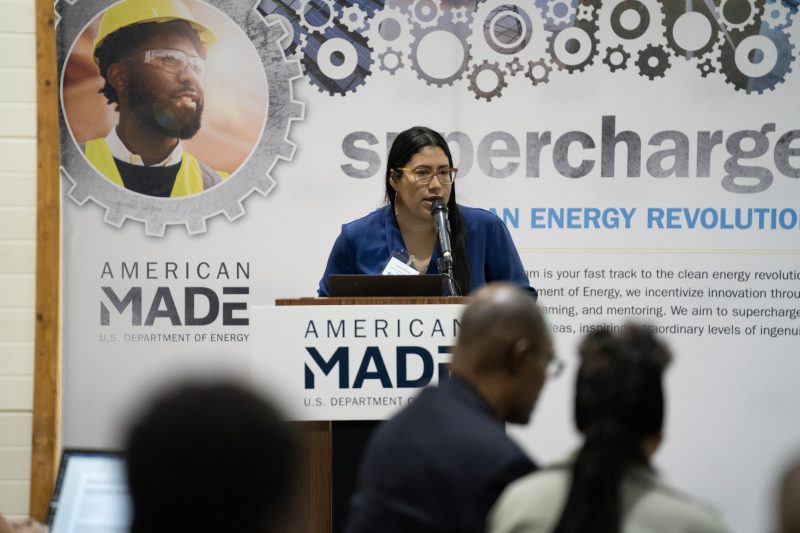
During the judges’ deliberation, the audience engaged in an ideation session with teams discussing potential resources, funding sources, and connections to help teams continue advancing their projects beyond the conclusion of the CCEC Prize. Dr. Elizabeth Doris, Director of Joint Institute for Strategic Energy Analysis at the National Renewable Energy Laboratory discussed ways NREL is thinking through strategies to further enhance prizes and work in a cross-cutting way across DOE programs. She ended her remarks by encouraging audience members to participate in prizes and provide feedback to prize administrators.
In the grand reveal at the end of the event, Rob Sandoli, Director of Strategic Initiatives at EERE commended all 10 teams for successfully completing the prize requirements and announced they would all be receiving a final $25,000 Phase Three award. The top three coalitions were also awarded additional prize bonuses ranging from $10k to $50k for the strength of their projects and vision for the future:
Sandoli emphasized that the prize money the teams received over the past year is only a starting point that enabled these coalitions to come together and build initial capacity, with the hope of working toward a long-term vision and funding strategy for the future.
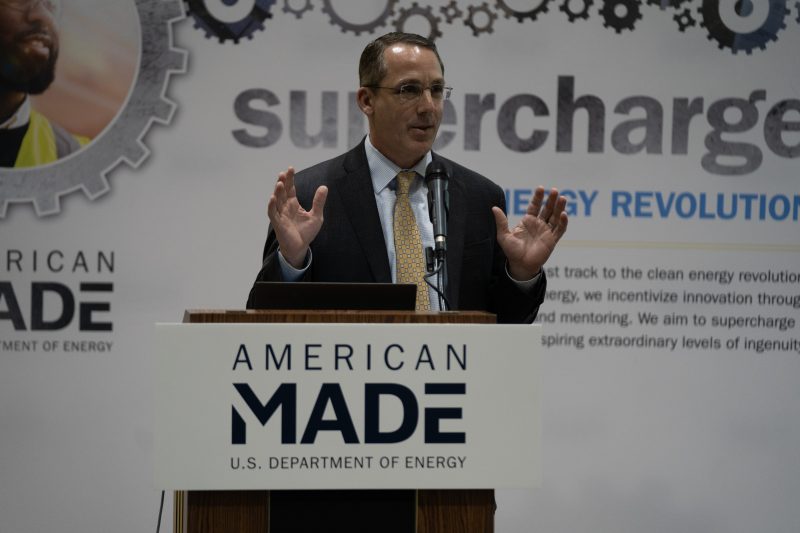
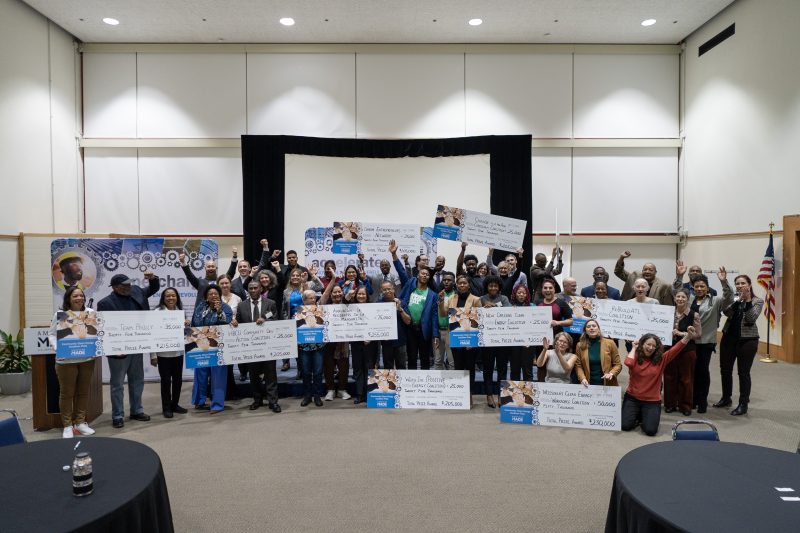
One of the main takeaways from the summit is the importance of collaboration and community engagement to tackle climate change. The United States now has an unprecedented opportunity—through resources emerging from the Justice40 Initiative, Bipartisan Infrastructure Law, and Inflation Reduction Act—to address historic inequities of the energy ecosystem and ensure that low-income, disadvantaged, frontline, and communities of color are seeing economic and health benefits from the clean energy transition.
Another major takeaway was the need for more funding—both public and private—to flow to the communities and community organizations that are disproportionately impacted by climate change. Despite the substantive investments arising from recent policies and legislation, gaps still remain, particularly when it comes to accessing those funds as well as private funding opportunities through investment and philanthropy.
Support from federal entities such as the Office of State and Community Energy Programs can provide assistance for community-based organizations, but more intentional outreach and support is needed across the ecosystem for outreach and technical assistance to ensure funding reaches communities directly.
The Summit served as an opportunity for changemakers across the public and private sectors to share knowledge, but also provided a chance to hear from the broader community of stakeholders working on energy equity and justice. This opportunity to view the holistic “mural of work,” as guest speaker Dr. Gilbert eloquently portrayed, hopefully left participants feeling reenergized and enthusiastic to play a part in a just energy transition!
Stay engaged in opportunities for furthering an inclusive clean energy economy by completing CEBN’s JEDI Interest Form and checking our U.S. Cleantech Funding Database for additional opportunities.
***